You can help expand this article with text translated from the corresponding article in Spanish. (April 2012)Click [show] for important translation instructions.
|
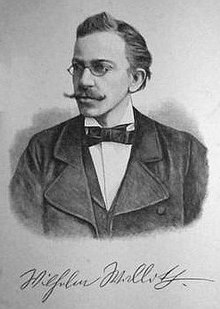
Wilhelm Walloth (1854–1932) was a German writer.
You can help expand this article with text translated from the corresponding article in Spanish. (April 2012)Click [show] for important translation instructions.
|

Wilhelm Walloth (1854–1932) was a German writer.
His parents died very early, so that Wilhelm Walloth and two-year younger brother Frederick grew up as orphans in a childless couple Hessian. Although well protected, Walloth often sickly. At age 17, he lost his beloved foster mother.
Early Walloth wrote poems, his idol was Ludwig Uhland . First Walloth saw his future in painting, but then studied in Heidelberg philosophy, aesthetics and literature. During this time, his first poems in 1882 already appeared in book form. In the following years he turned entirely on the painting out and wrote his most important historical novels and contemporary novels and proved his enormous poetic power. His novels were imbued with the naturalism and leading naturalists as Michael Georg Conrad, Konrad Alberti and Karl Bleibtreu saw in Walloth an innovator of the historical novel. Because of this proximity to the naturalists, the prosecutor discovered his books and in 1890 he became, together with Konrad Alberti and other writers in Leipzig realist process charged with "lewd writings". After his studies back in Darmstadt, he was exposed to new hostilities. Reason was his friendship with the high school students Nodnagel Paul, under the pseudonym G. Ludwig in the literary journal The Company had praised novels Walloths. The precocious and gifted boy committed suicide, and because Walloths reputation as a nerd and his role in the literary process this fact was attributed to the use of the poet. A few years later moved Walloth to Munich, where he remained until his death. There he turned to the writing of plays, but they were received with little success. The study of homoerotic love affairs ( A nerd, Eros ) and a certain pessimism of the author, the main characters often end with suicide, and the bankruptcy of his former publisher Wilhelm Friedrich had a low perception of the works in the public order. Walloths major works' Tiberius and Octavia were reissued in 1917 in the series "novels of world literature" by the publisher Hesse & Becker. His wealth lost due to inflation after the First World War, he had to rely on the help of well-meaning people. In his last years he dealt with the theosophy of Rudolf Steiner .
Wilhelm Walloth continued to write until his death in 1932, but he was almost forgotten and many of his manuscripts from this period were lost.
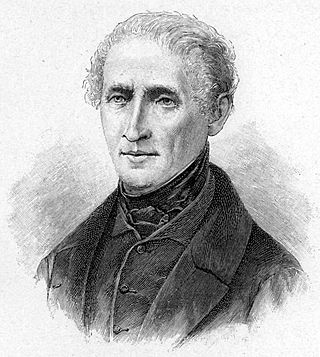
Joseph Freiherr von Eichendorff was a German poet, novelist, playwright, literary critic, translator, and anthologist. Eichendorff was one of the major writers and critics of Romanticism. Ever since their publication and up to the present day, some of his works have been very popular in German-speaking Europe.

Felix Ludwig Julius Dahn was a German law professor and nationalist author, poet and historian.
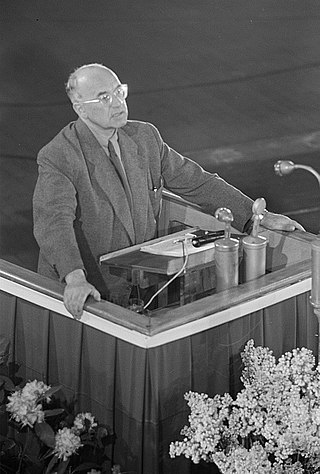
Johannes Robert Becher was a German politician, novelist, and poet. He was affiliated with the Communist Party of Germany (KPD) before World War II. At one time, he was part of the literary avant-garde, writing in an expressionist style.
Wilhelm Weigand was a German Neoromanticism and Realism period poet and writer. He was born Wilhelm Schnarrenberger, but on 2 May 1888 he took the maiden name of his grandmother.

Heinrich Landesmann, more commonly known by his pseudonym, Hieronymus Lorm, was an Austrian poet and philosophical writer.
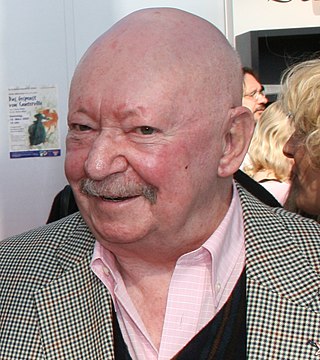
Günter Kunert was a German writer. Based in East Berlin, he published poetry from 1947, supported by Bertold Brecht. After he had signed a petition against the deprivation of the citizenship of Wolf Biermann in 1976, he lost his SED membership, and moved to the West two years later. He is regarded as a versatile German writer who wrote short stories, essays, autobiographical works, film scripts and novels. He received international honorary doctorates and awards.
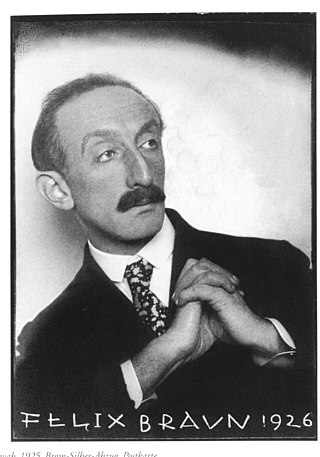
Felix Braun was an Austrian writer.

Will Vesper was a German author and literary critic who was involved in the Nazi book burnings.

Wilhelm Bölsche was a German author, editor and publicist. He was among the early promoters of nature conservation and committed to popularizing science.

Die Krokodile was a small poets' society in Munich which existed from 1856 to the 1870s.
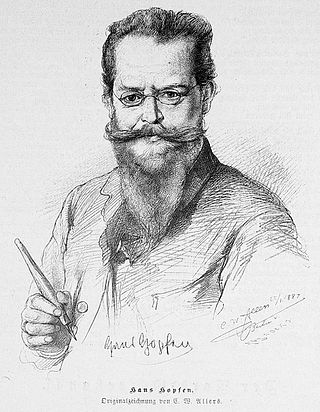
Demetrius Hans Hopfen was a Bavarian poet and novelist.

Johannes Schlaf was a German playwright, author, and translator and an important exponent of Naturalism. As a translator he was important for exposing the German-speaking world to the works of Walt Whitman, Émile Verhaeren and Émile Zola and is known as a founder of the "Whitman Cult" in Germany. His literary achievements lie foremost in the scenic-dialogue innovations of "sequential naturalism" and in the formalization of literary impressionism. He also contributed to the emergence of the "intimate theater."

Karl August Bleibtreu was a German writer who promoted naturalism in German literature. He was noted for his aggressive and dogmatic style of criticism, linked to a nationalistic and sometimes antisemitic agenda. His later work was heavily influenced by Nietzsche's theory of the übermensch.

F. W. Bernstein was a German poet, cartoonist, satirist, and academic. He worked for the satirical biweekly pardon. After teaching at schools, he was professor of caricature and comics at the Berlin Academy of the Arts from 1984 to 1999. He was one of the founding members of the Neue Frankfurter Schule, which published the satirical magazine Titanic.

Max Kretzer was a German writer. He left school at the age of thirteen and worked in a factory for twelve years. He became a prolific and successful novelist in the social realist style, depicting common working people.
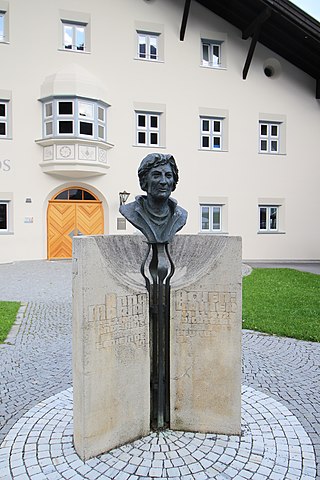
Anna Maria Achenrainer was an Austrian writer.

Max Herrmann-Neisse was a German expressionist writer.

"Das Wandern ist des Müllers Lust" is the first line of a poem by Wilhelm Müller, written in 1821 with the title "Wanderschaft" as part of a collection, Die schöne Müllerin. While wandern is defined as "hiking" today, it referred to the required journeyman years of craftsmen when written, in this case of a miller.

Hanns Theodor Wilhelm Freiherr von Gumppenberg was a German poet, translator, cabaret artist and theatre critic. He used the pseudonyms Jodok and Professor Immanuel Tiefbohrer.

Oskar Philipp von Chelius (1859-1923) was a Prussian Generalleutnant who served during World War I as an Adjutant of Emperor Wilhelm II and as a military attaché. He also was a composer.